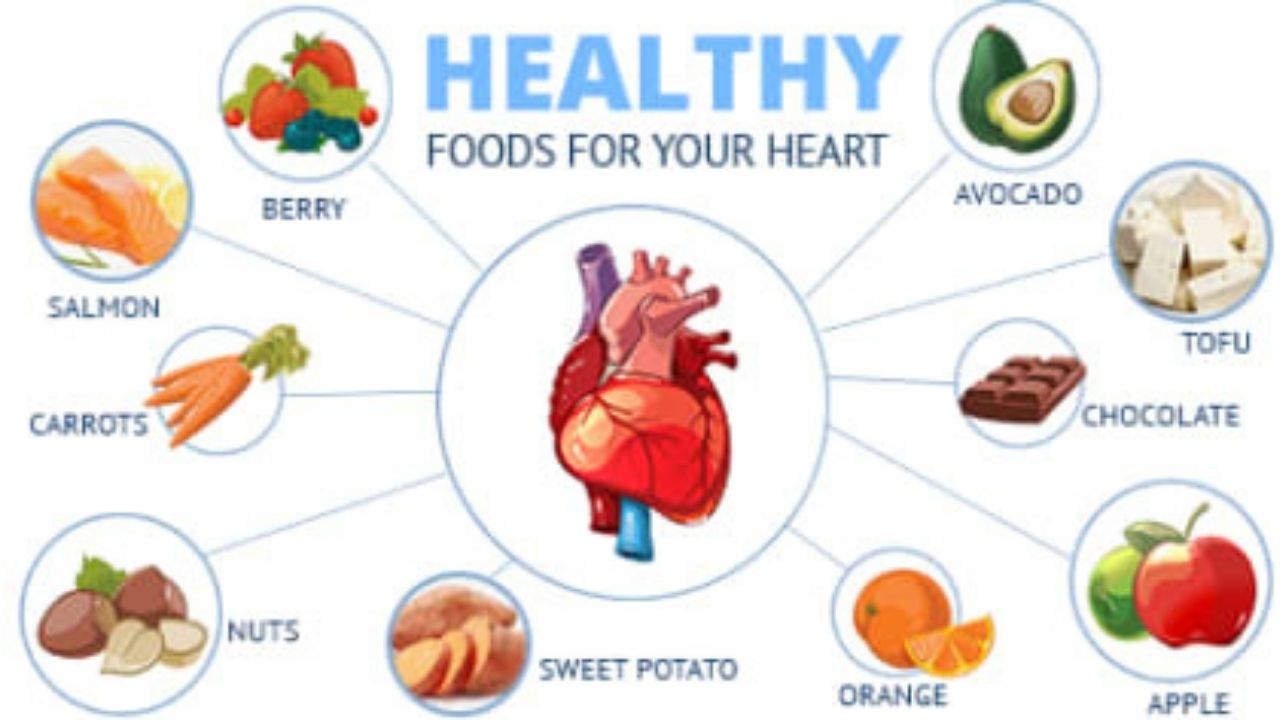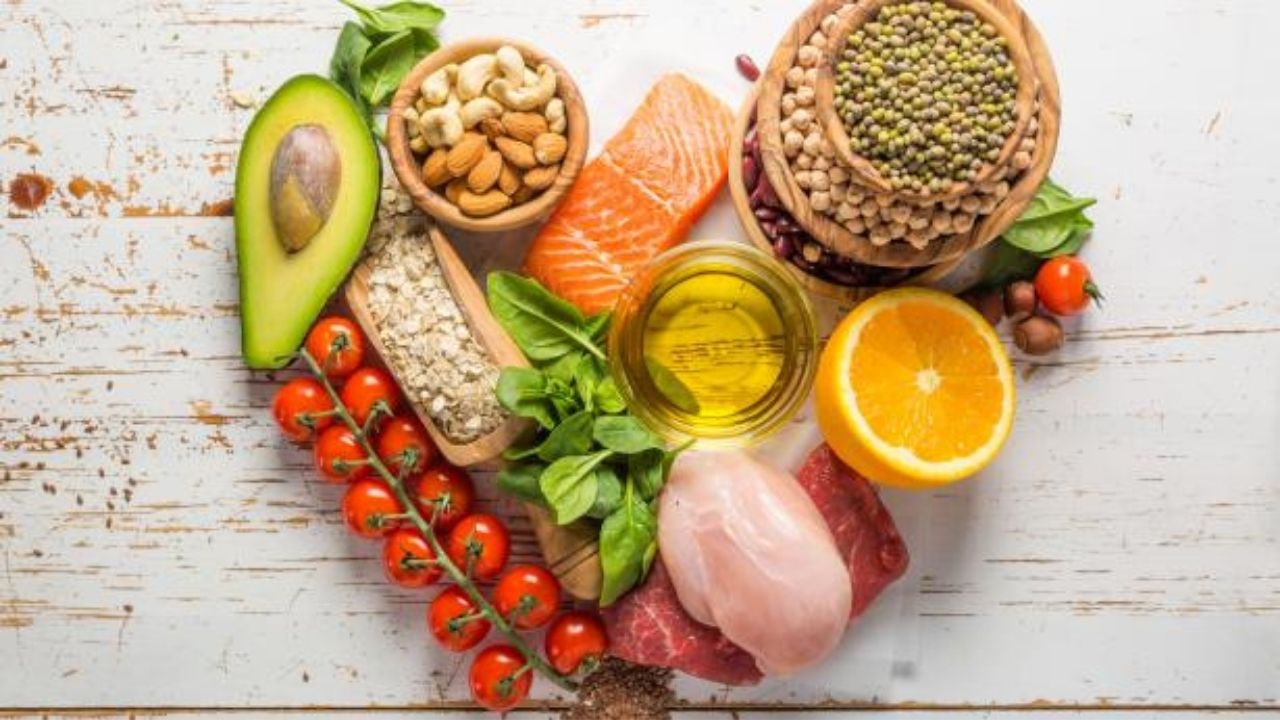Heart-Healthy Foods – The first rule of having a healthy heart is to limit cardiovascular risk factors. This is why it is essential to follow a diet rich in foods that are good for the heart, combined with an adequate lifestyle, to preserve cardiological health.
Nutrition helps to have a healthy heart
Each food involves a combination of nutrients, vitamins and minerals that affect the well-being of the whole organism, and following good dietary rules helps to protect or control some risk factors for the most common cardiovascular diseases such as high cholesterol and high blood pressure.
To affect heart health are not only some predisposing factors such as advancing age, familiarity or sex but above all some modifiable elements such as: overweight, obesity, diabetes but also smoking and sedentary lifestyle which if properly controlled reduce the risk of heart conditions such as ischemia, heart attacks and strokes.
Generally speaking, a heart protective diet includes:
- increased consumption of fruit, vegetables, fish and legumes.
- reduction of saturated fats as they affect the cholesterol level.
- choice of foods that provide essential nutrients.
- control of calories introduced.
- lower salt intake as it favors the increase in blood pressure.
According to the World Health Organization, a healthy and balanced diet could prevent about 1/3 of cardiovascular diseases, which in worldwide represent the main cause of death with 17.9 million people die every year.
Heart-healthy foods

Italian eating habits, and in particular the Mediterranean diet, already represent in themselves models of good nutrition recognized all over the world. However, the list of foods that are good for the heart is very varied and for this reason it is advisable to alternate:
- Fresh fruit, and vegetables : increase the daily consumption of vegetables without particular quantity limitations. The ideal would be a portion of vegetables (preferably branches) for both lunch and dinner. Spinach, red radicchio, mushrooms, zucchini, rocket, fennel are fine while prefer fruit outside meals such as kiwi, mandarins, apricots, cherries, apples, pineapples with the exception of too sugary fruits (grapes, figs) for those who are overweight or diabetic.
- Fish : at least twice a week consume preferably blue fish (salmon, anchovies, sardines, mackerel) rich in heart – protective Omega-3 polyunsaturated fatty acids. For all types of fish, the amount of saturated fat is close to zero and the amount of cholesterol is very low, on the contrary instead of seafood (such as scampi, prawns and lobster) which should be eaten occasionally because they are rich in it.
- Legumes : oats, beans, chickpeas, peas, lentils must be present in the weekly menu regularly, even 2-3 times a week. In fact, legumes help reduce cholesterol and keep blood pressure and triglycerides in the blood under control.
- Meats : lean meats, such as chicken and turkey, veal, rabbit and lamb, should be chosen , limiting the consumption of fatty meats. Modern farming systems also make it possible to find lean pork on the market.
- Whole grains : bread, pasta, rice but also potatoes and polenta are foods rich in starch and should be combined in different meals. Better to prefer whole-grain products rich in fiber that reduce fat absorption and increase the sense of satiety, helping to maintain a healthy weight. If you are overweight, reduce the portions as these starchy foods have a high glycemic index.
Instead, we must pay attention to the consumption of:
- Cured meats and sausages : they are rich in saturated fat and cholesterol and also contain a lot of salt. Therefore, limit the intake of sausages, wurstel, mortadella and from time to time prefer lean cured meats such as raw ham and bresaola.
- Milk and derivatives : prefer the consumption of semi-skimmed or skimmed milk for a diet low in cholesterol. Even the cheeses are foods rich in saturated fat and salt, so limit your use to no more than a couple of times a week to weight ratio.
- Eggs : although they are one of the most complete foods from a nutritional point of view, it is good to eat no more than 2 eggs a week because they are rich in cholesterol.
- Oils and fats : use vegetable oils for seasoning foods, in particular olive oil which contains oleic acid, a monounsaturated fat that has protective effects on cardiovascular diseases. Instead, limit animal fats such as butter and lard, vegetable oils such as palm oil, sauces and condiments with a high fat content.
- Salt : avoid adding table salt to dishes because all foods (except rice and fruit) are already salty. Also watch out for additives like sodium glutamate and sodium citrate hidden in food. It must be considered that the daily requirement of salt is around 4 grams, while the western population consumes double it.
- Desserts : Pastries, cakes and chocolate are foods rich in simple sugars and fats with a high caloric intake ; they are also low in nutrients. Their intake should be limited to occasional consumption and small portions.
- Drinks : limit the consumption of carbonated and sugary drinks, but also alcohol and spirits. The wine in moderation (1-2 cups per day) is rather protective for the heart, and with its quality antioxidants can counteract the bad cholesterol.
What are the good habits for heart health
- Follow a diet low in animal fats, salt, simple sugars and calorie foods in order to control body weight.
- Prefer healthy cooking methods such as steamed, boiled, grilled, microwaved, with simple seasonings. No to fried foods that add unnecessary fat to the diet.
- Doing regular physical activity commensurate with your conditions. Just a brisk walk, a bike ride or a bit of swimming, three times a week, for 30 minutes. This activity, if carried out consistently, allows you to increase the levels of “good” cholesterol and reduce “bad” cholesterol.
- It is forbidden to skip meals and stick to the 3-5 daily rations rule. Fasting, in fact, promotes an increase in the sense of hunger which therefore leads to eating larger quantities of food at the next meal. The risk is not to dispose of the number of calories and promote weight gain over time.
- Beware of snacks : crackers, toast, packaged snacks are produced without salt or low in sodium, but some are rich in saturated fats and hydrogenated fats. You must be very careful and carefully read the labels or the list of ingredients.
- When you indulge in “a break from the diet” with some foods rich in saturated fats or high calories, you must always counterbalance the following meals with the intake of “favorable” and healthier foods for the heart.
- Stop smoking.
